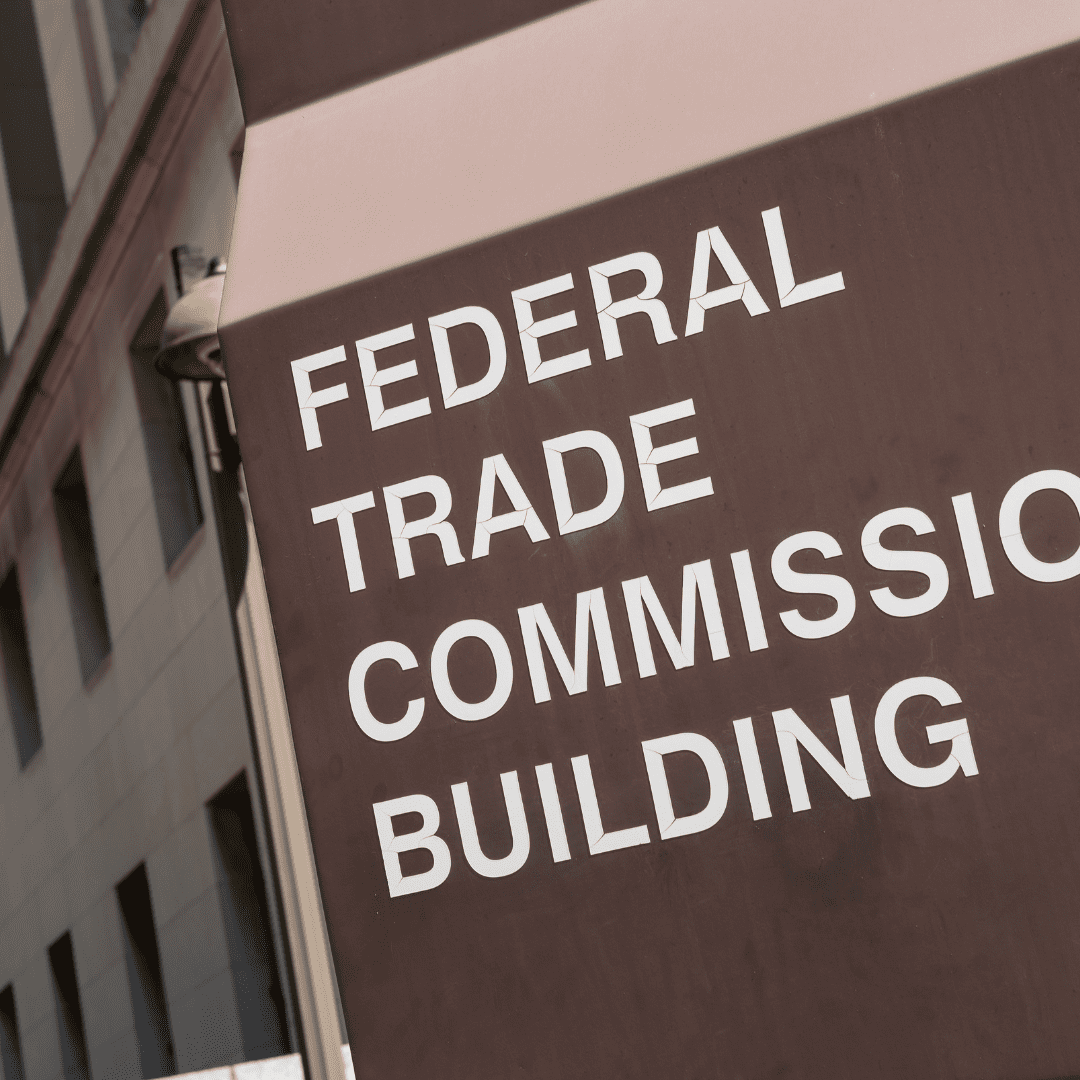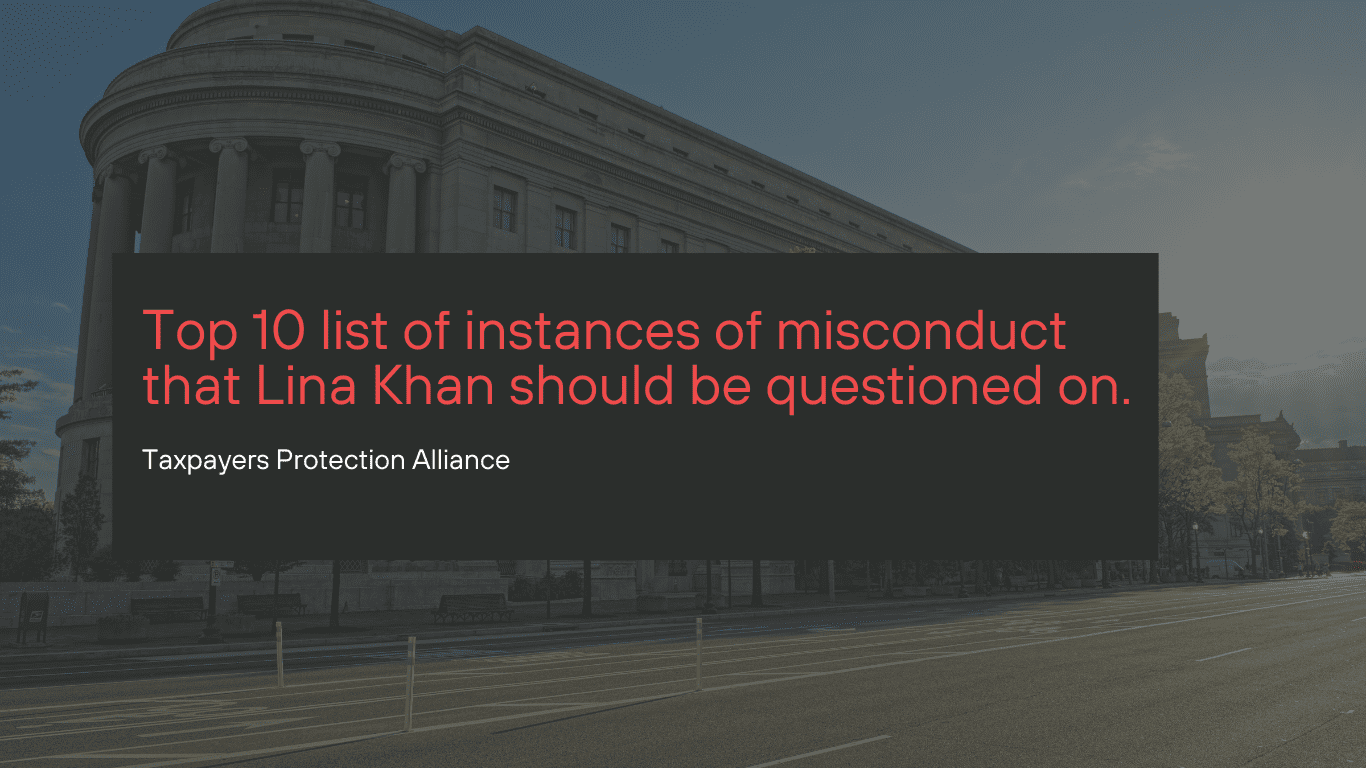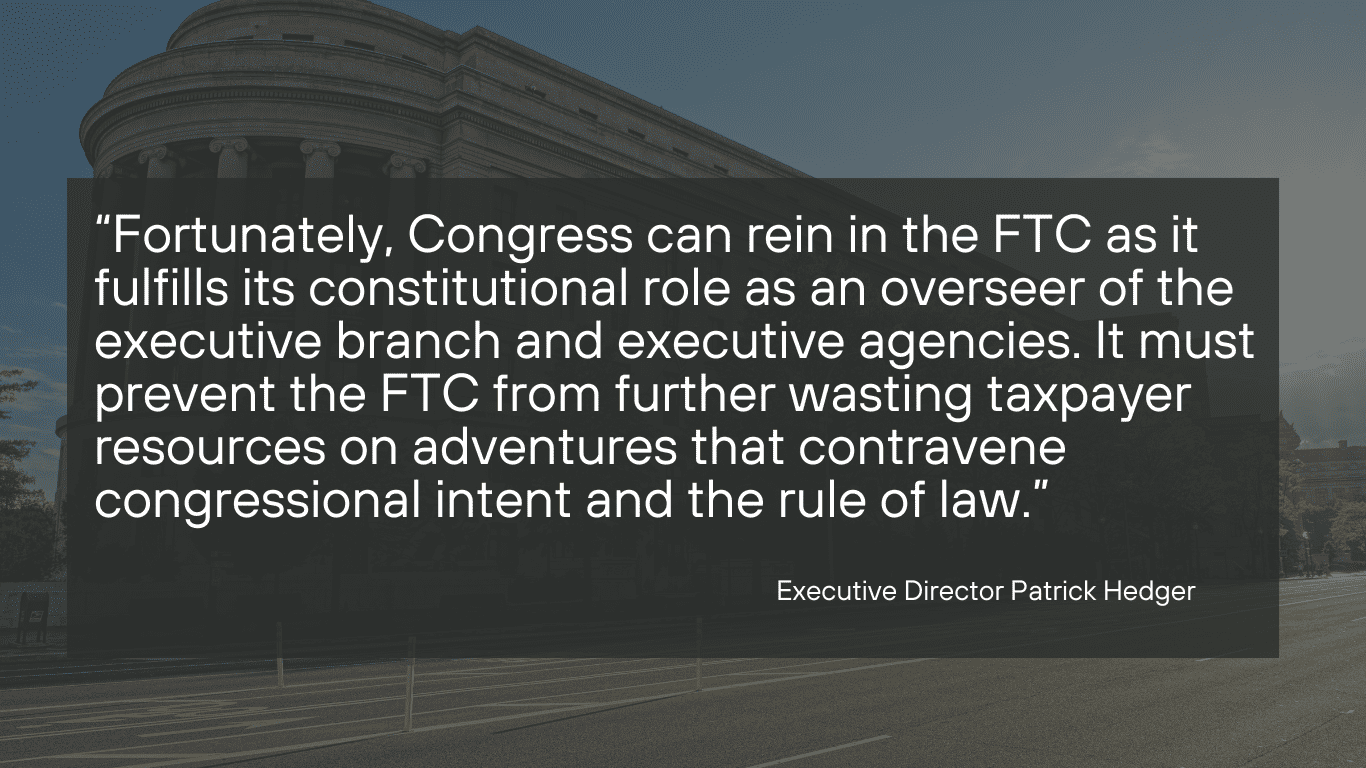
Watchdog Asks Congress to Rein In Biden’s Rogue FTC
Taxpayers Protection Alliance
July 13, 2023
WASHINGTON, D.C. – Federal Trade Commission (FTC) Chair Lina Khan will testify on Thursday before the House Judiciary Committee. Since her ascension in 2021, Khan’s tenure has been defined by multiple losses in court, ideologically driven overreach, radical – and discredited – theories of competition, politicized targeting of American industry, disregard for statute and precedent, and shady ethical dealings. A standard-bearer for the “neo-Brandeisian” school of antitrust – named after the Progressive Era trustbuster, Justice Louis Brandeis – Khan seeks to resurrect outdated and debunked antitrust theories that, before being reputed decades ago by a bipartisan consensus, wreaked havoc on the mid-century American economy. This hearing couldn’t come at a better time, as a judge on Tuesday rejected the agency’s suit to halt Microsoft’s merger with game developer Activision Blizzard, a frivolous case that wasted taxpayer dollars and targeted an iconic and productive American company facing competition from larger Chinese and Japanese firms.
The Taxpayers Protection Alliance (TPA) urges Congress to hold Khan accountable for her regressive malfeasance.

1. Khan wants her agency to interfere often and aggressively in the market to further her myopic view of “fair” competition. In FTC guidance documents, Khan has repudiated economically sound principles of antitrust such as the “consumer-welfare standard” and the “rule of reason.” She has replaced them with vague and indefinite standards. These are meant to maximize the agency’s ability to pursue a radical agenda at its own discretion – without regard for law or precedent. As former Commissioner Christine Wilson noted, the FTC’s new guidance “provides that merely labeling conduct with an appropriate adjective can establish liability.”
2. Khan has pursued flimsy enforcement cases based on novel theories of antitrust. For example, the FTC’s suit to block the Microsoft–Activision deal was trivial from the start. In short, on the flimsiest theory of potential consumer harms, the agency attempted to prevent a deal that will allow an American company to better compete with other companies worldwide (such as Sony). Also, Khan unsuccessfully sought to block Meta’s merger with virtual reality company Within, arguing that the deal would likely prevent competition in the future. This theory has no basis in the American antitrust tradition and a federal judge duly rejected it. Bringing such absurd cases harms companies that must ward them off and wastes taxpayer funds.
3. In multiple cases, Khan has disregarded decades of settled law and antitrust precedent. To target Meta, Khan is attempting to single-handedly rewrite a 2020 court-ordered settlement. This would prevent Meta from monetizing children’s data or issuing new or updated products without the sign-off of a bureaucrat. What’s more, the FTC’s pretext for this power grab is based on allegations of years-old and now-resolved misconduct. Even Democratic FTC Commissioner Alvaro Bedoya has voiced skepticism over the legality of this move. Bedoya’s reasonable and moderate comments to this end were met with a deluge of outrage from radical, left-wing antitrust advocates.
4. Khan’s antipathy for Meta – and other big tech companies such as Amazon – is longstanding, documented, and quite public. Before joining the Commission, she stated that she supported blocking any new merger Meta might attempt. Nonetheless, Khan refused to recuse herself from the Meta–Within case, contravening the recommendations of an FTC ethics official. Next, the Commission’s Democrats voted to redact this information to spare Khan public embarrassment. Khan then misled Congress about the incident, stating in a hearing that she had only “taken actions that are consistent with the legal statements that the [ethics official] has made.”
5. Following the resignations of both of the FTC’s Republicans, only three of the agency’s five commissionerships are now filled. In a scathing resignation letter published in February by The Wall Street Journal (WSJ), Wilson accused Khan of harboring a “disregard for the rule of law and due process.” Wilson wrote: “I have failed repeatedly to persuade Ms. Khan and her enablers to do the right thing, and I refuse to give their endeavor any further hint of legitimacy by remaining.”
6. Khan’s legal overreaches and management style have frustrated more than just the former Republican commissioners. Federal survey data from 2020, the year before Khan’s appointment, show that 87 percent of FTC employees believed leadership maintained high standards of honesty and integrity. Under Khan, that figure shrunk to 49 percent. In the rankings of “Best Places to Work in the Federal Government,” the FTC plummeted from 2nd to 20th among 27 midsized federal agencies. Khan has, moreover, reportedly alienated senior staffers, triggering an exodus from the agency.
7. Under Khan, the FTC has undertaken rulemaking proceedings that lack statutory authority and usurp Congress’s role. In January, for example, the agency took the first steps for a sweeping privacy rulemaking, even though Congress was debating major privacy regulation at that very time. The FTC is neither intended nor equipped to function as a legislative body parallel to Congress. Assertions to the contrary fly in the face of America’s very constitutional order. The agency has a defined, yet critical, economic function to perform – to prevent anticompetitive practices and various consumer harms – and it must restrict its activities to that mandate.
8. Besides its misconduct at home, the FTC has reportedly coordinated with European regulators to impose on American companies innovation-killing, E.U.-style regulations. For instance, sensing adversity in U.S. courts, the agency appears to have reached out to its continental counterpart to kill the Illumina–Grail merger. It has since overruled an in-house administrative law judge to continue its crusade against the deal (the first such loss in decades). Unelected bureaucrats should not be in the business of attempting to unilaterally reshape American competition policy in direct contravention of Congress’s intentions.
9. The FTC has rewritten merger guidelines to place undue burdens on industry. The agency’s most recent updates to merger requirements introduce rafts of new time and paperwork costs for merging parties. “Antitrust experts say businesses currently need about 10 days to submit a filing and that the FTC’s new demands could add several months to the process,” WSJ’s editorial board reported. Mergers are generally a pro-competitive, pro-consumer business practice that facilitate efficient capital flows, price deflation, and other benefits. To further her rigid, radical crusades, Khan would deprive the American people of these benefits.
10. Khan’s FTC has not provided businesses with sufficient notice of what practices may be considered per se illegal. In other words, the FTC has declined to state explicitly how companies can avoid its wrath. This frees the agency to pursue all manner of frivolous cases. And even if targeted business would ultimately win in court, many will simply settle to avoid grueling and time-consuming litigation.
TPA Executive Director Patrick Hedger offered the following comment:
“Chair Khan’s latest loss with the Microsoft case continues her losing streak. Khan’s FTC wants to micromanage the economy. The agency’s theory of antitrust enforcement is that it should be allowed to take on practically any enforcement or rulemaking action it chooses. America is a nation of laws and due process, not capricious and arbitrary enforcement by unelected bureaucrats.”

